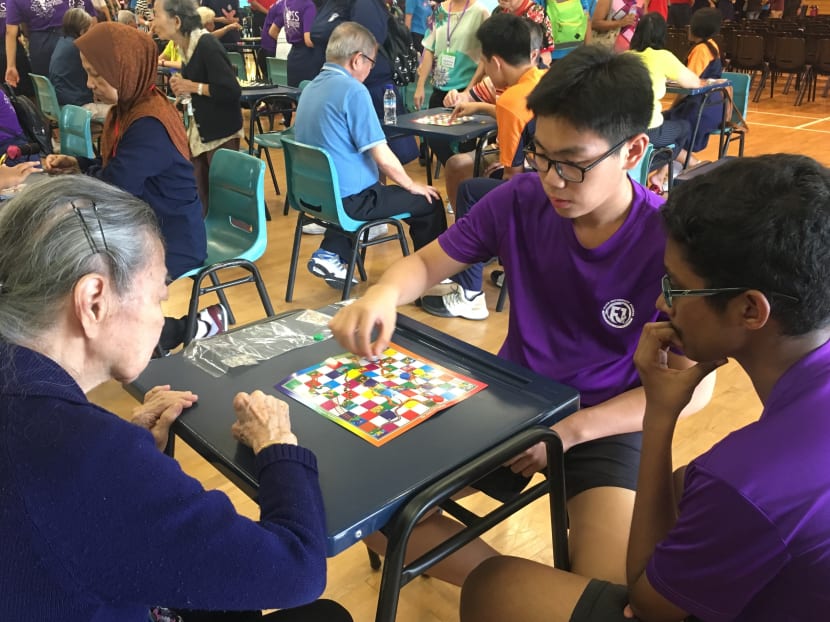Fajar Sec students work together to organise games with the elderly
SINGAPORE — Once a year, about 200 senior citizens get to play bingo or engage in “eraser wars” with Secondary Three students at Fajar Secondary School.

Seniors from St Luke's Eldercare Centre playing games with Secondary 3 students from Fajar Secondary School, at the school's annual Inter-Generational Games on October 26, 2017. Photo: Louisa Tang/TODAY
SINGAPORE — Once a year, about 200 senior citizens get to play bingo or engage in “eraser wars” with Secondary Three students at Fajar Secondary School.
This year, 120 students worked together to plan and organise the Inter-Generational Games, involving seniors and their caregivers from eight eldercare centres, including St Luke’s ElderCare.
The students also visited the elderly living in one-room flats in Marsiling and Yew Tee to get to know them, which helped when they were designing the games and activities.
The Inter-Generational Games — which began in 2012 at Chestnut Drive Secondary School, before it merged with Fajar Secondary — complement the students’ Character and Citizenship Education and Social Studies lessons, which include topics related to the ageing population.
The students come together to brainstorm ideas on games that are suitable for the elderly. As they planned for the big day, they tried playing some of the games with the elderly they visited, to further improve their proposal.
Ms Lin Xiaojun, head of Fajar Secondary’s Character and Citizenship Education department, said that while disagreements and conflicts arose, such collaborative problem-solving taught the students to “communicate effectively with one another”.
“We saw students taking on different roles in their team – some took charge of the elderly, some took charge of the booths. What was positive about this team organisation was that they could tap each other’s strengths,” Ms Lin said.
Secondary Three student Thomas Lim, 15, got his classmate to translate when he could not understand what a senior citizen had said in Mandarin. “One thing is for sure: We need to understand each other’s strengths and weaknesses. That’s one way we can learn teamwork,” he said.
Another student, Nur Farah Iman Farid, 15, said: “We don’t get many opportunities to collaborate with our friends. It was nice getting to know their ideas (on) what they think is important when it comes to (interactions between) the elderly and the young people.”
Fellow student Samrat, 15, who goes by one name, said that he was afraid of collaborating and speaking with his classmates before working on the Inter-Generational Games. “After this event, it was much easier,” he said.








